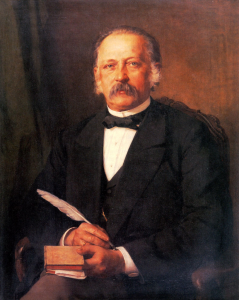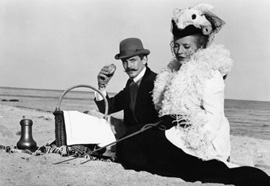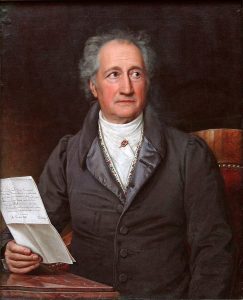Budding Germanists out there might be interested in delving into a ‘German Classic’: Friedrich Schiller’s Maria Stuart. For the second year, the Oxford German Network is running an essay competition for Sixth-Formers who have studied German at GCSE level (you do not need to be studying German at A Level or equivalent). There are prizes of £500, £300, and £100 to be won. The deadline for submissions is noon on Wednesday 12 September 2018. More information is available here or read on to find out more…
The Prize celebrates a classic text of German literature, with resources to make it accessible whether or not you have experience of German literature. This year, the prize focuses on Friedrich Schiller’s play Maria Stuart, a fascinating historical drama about how Elizabeth I came to have Mary, Queen of Scots executed. The great centrepiece of the play is a gripping confrontation between Elisabeth and Maria – in fact, it never happened but it makes for electrifying drama.
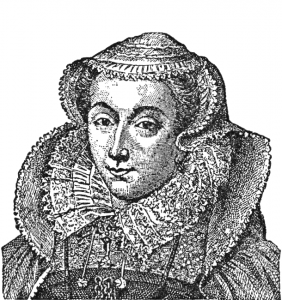
You will find a rich array of material including podcasts and YouTube links on Maria Stuart: http://www.ogn.ox.ac.uk/content/german-classics-prize. Candidates may also request a special reader with extracts from secondary literature on the work (see contact details on the website).
The task: Write a 2000 to 3000-word essay in English, independently and unsupervised, over the summer holidays between Lower and Upper Sixth/ between Years 12 and 13.
The prize, and funding of the accompanying resources, have been generously donated by Jonathan Gaisman, QC, a highly distinguished commercial barrister who was introduced to German literature at school and still finds German literature and culture the most intellectually rewarding part of his life. He would like to give young people the opportunity to be inspired as he was when he first encountered German literature.
Students willing to have a go at undertaking this challenge have the possibility of winning a glittering cash prize worth £500, £300 or £100. All participants will get a certificate of participation.
The prize is aimed at German learners in the UK. It does not assume that participants will be taking English beyond GCSE or that they have a prior interest in literature. The rationale for asking Modern Languages students to write an essay in English is to give an opportunity for UK learners to engage with a linguistically and intellectually challenging German work in the linguistic medium they are most comfortable with. While participants may want to use a translation to support their understanding, we recommend reading the work in the original to get the most out of it and take advantage of the opportunity it offers for expanding German competence. All quotations must be in German.
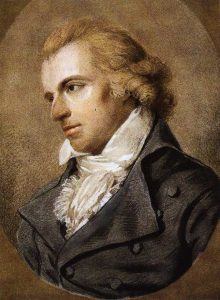
As with all the Oxford German Olympiad competitions, we aim to create a level playing field for students from different backgrounds, schools, and levels of linguistic competence. The submission form must be signed by the participant’s teacher, who is also asked to submit the essay online. All sixth-formers in UK schools with a GCSE or equivalent UK qualification in German are entitled to take part, including students who are not taking a German A-level or equivalent qualification. Native and near-native speakers of German are not excluded but are required to declare their linguistic status on the submission form. Our prime criterion is the quality of intellectual and imaginative engagement with the work evident in the essay while taking account of prior opportunity.
Any questions should be addressed to the German Classic Prize Coordinator: Joanna Raisbeck, joanna.raisbeck@some.ox.ac.uk.
Viel Glück!

